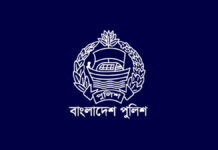The Supreme Court Tuesday awarded death penalty to Jamaat-e-Islami leader Abdul Quader Mollah responding to appeals against a trial court verdict ordering his life-term imprisonment for wartime offences.
In a sensational verdict that came months after a youth uprising demanding highest punishment to war criminals, the highest court of the country found a life-term imprisonment lenient for a crime like killing one Hazrat Ali Laskar and his family members in Mirpur during the 1971 Liberation War and ordered hanging the Jamaat assistant secretary general till death.
Apart from the death sentence, Tuesday’s verdict of the Appellate Division brought another major change to the International Crimes Tribunal judgement: it found Mollah guilty for killing hundreds of people at Ghatar Char and Bhawal Khan Bari in Keraniganj and awarded life-term imprisonment for the offence.
In its February 5 judgement, the International Crimes Tribunal-2 said the prosecution had failed to prove this charge.
The Appellate Division upheld the ICT-2 punishment for four other charges.
Terming the verdict “wrong”, the convict’s counsels said they would seek review of the judgement.
Mollah, who was a commander of infamous Al Badr group during the Liberation War, now stands guilty of all the six charges the investigators pressed against him.
After the February 5 verdict and subsequent amendment to the ICT law incorporating provision for the government to appeal against any judgement, the state on March 3 appealed to the SC seeking death penalty to Mollah terming the punishment “inadequate”. The defence appealed a day later seeking acquittal on all charges.
After hearing both the sides, a five-member bench of the Appellate Division rejected the convict’s plea.
This is for the first time that the Supreme Court delivered judgement in a war crimes case.
This case has special significance also for the February 5 rise of an unprecedented mass movement at the Shahbagh intersection in the capital demanding capital punishment for war criminals.
The Shahbagh movement, which soon spread even outside the country, prompted the government to amend the International Crimes (Tribunals) Act-1973 to ensure the right of the state to appeal on behalf of the war crimes victims of 1971.
Before that amendment on February 17, only convicted accused in war crimes cases had the right to appeal with the SC against the conviction handed down by a tribunal.
The defence counsel, barrister Abdur Razzaq, also assistant secretary general of Jamaat, vehemently opposed the government’s appeal, arguing that the government’s appeal was not acceptable under the amended International Crimes (Tribunals) Act, 1973, since the amendment was passed after Tribunal-2 had convicted his client of war crimes.
The apex court then appointed seven noted jurists as amici curiae (friends of court) to get their opinions on this debate.
Five of the seven amici curiae opined the amendment was applicable even in Mollah’s case while two others disagreed.
Source: The Daily Star










